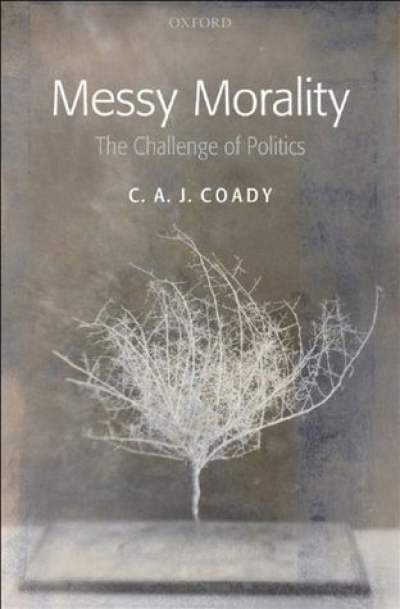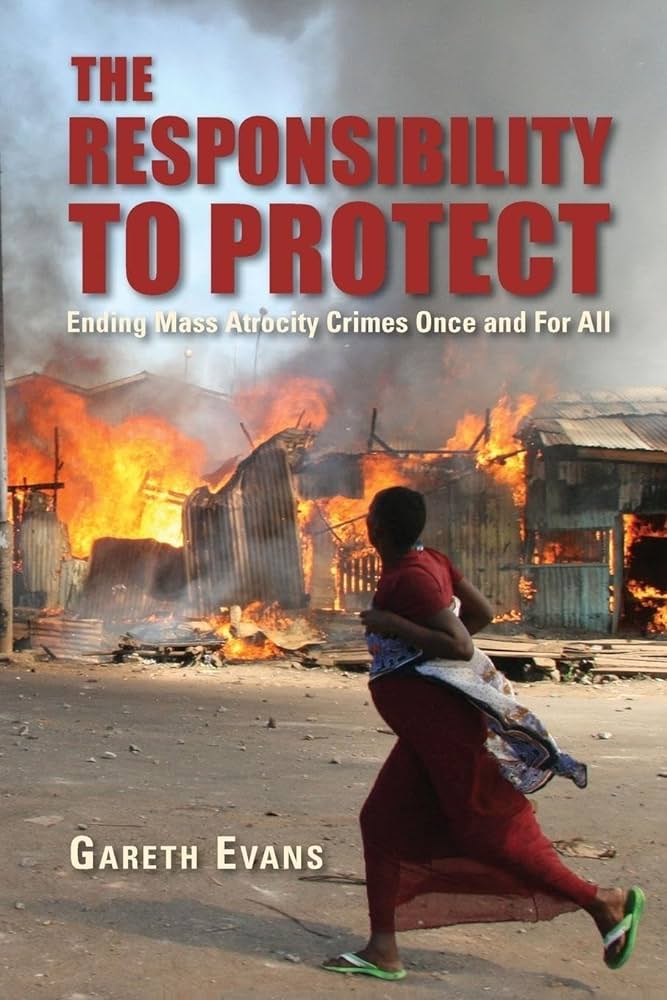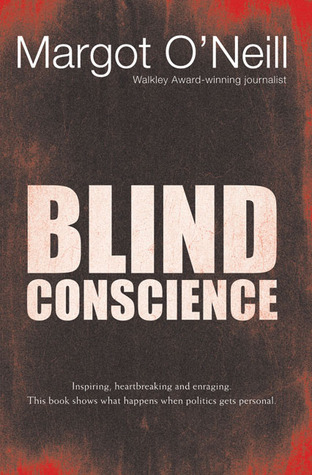Politics
After abandoning its ideals, the Australian Labor Party ‘degenerated into a vast machine for capturing political power’: that was the diagnosis of Vere Gordon Childe, the polymathic party insider, and he was writing in 1923. The brutality of Labor machine politics is hardly news, but it remains relatively unexplored territory in Australian fiction. Matthew Karpin’s latest novel gives us the blackest of the factional black hats – the right – doing deals and scheming schemes in an imaginary New South Wales state government during the mid 1990s. Satire is the usual Australian response to the venality of those who govern us, but Karpin’s approach, by contrast, is intensely serious, as he presents the inner lives and inner demons of a large cast of parliamentarians and apparatchiks. In that respect, The Right is as much a psychological novel as it is a political one.
... (read more)Apologists for torture often defend their walk on the dark side by invoking putative imperatives, such as protecting their communities from great evils. The paradigm is the ‘ticking bomb’ situation, where pre-empting catastrophe hangs on extracting information from uncooperative terrorists. The merging of combatants and innocents in modern warfare has highlighted the terrible dilemmas of ‘collateral damage’: how much intended or foreseen material destruction and killing of innocents can be justified in engaging your enemy? Then there are the ‘noble’ lies that politicians seem obliged to tell in protecting the larger interests of the nation.
... (read more)I am old enough to remember when we called it ‘the Levant’. The eastern Mediterranean, a land where the sun rose, where camels lazed in the shade of palm trees, strewn here and there with baked mud huts and their shadows on the sand. A sleepy land, no trouble to anyone, least of all the Ottoman Sultan, its faraway and hands-off ruler – the sick man of Europe, they called him. I once had in my possession an early twentieth-century photograph that came to my family from Palestine with just such a scene: the square adobe hut, the palm tree, the camel. It has long disappeared, along with any misguided notions I had of the place. ‘Middle East’ conjures up altogether different images: bombed cities, crowded refugee camps, unimaginable suffering and bloodshed – above all, hatred. A hatred that runs so deep, over so many generations, that it is a test of the imagination to envisage its ever abating.
... (read more)Authenticity is a prized but rare commodity in politics. Few politicians are credited with having it to begin with; it is even more difficult to maintain during a political career. Part of the problem is that when politicians seek to understand and please the amorphous public, they generally turn to pollsters and advisers who end up scripting their words, campaigns and governing strategies. These gurus will even inform them what food is most appropriate (sandwiches with regular mustard, not Dijon, as one of Obama’s aides told him during a visit to a diner in southern Illinois). Public appearances are selected based on voter resonance, though sometimes with jarring results, as with the appearance of then New South Wales premier, the urbane non-motorist Bob Carr, at the opening of a drag-car racing track. Male politicians are told to wear earthy colours to appear more manly. Those who end up on a television debate are advised to keep away the frowns and scowls, even when their opponents twist the truth.
... (read more)Imposing Peace and Prosperity: Australia, Social justice and Labour reform in occupied Japan by Christine de Matos
In 2004, the year after the US-led invasion of Iraq, Stefan Halper, a senior diplomat who had served Republican administrations from Nixon to Reagan, published America Alone: The Neo-Conservatives and the Global Order, a celebrated and scathing critique of the neo-conservative influence on George W. Bush’s foreign policy. It was different after World War II, thought Halper, when US forces were welcomed as liberators. The occupations of Germany and Japan became models of what could be achieved. It is a theme that has found some resonance in the Obama administration.
... (read more)The Devil We Know: Dealing with the new Iranian superpower by Robert Baer
One of the legacies of the Bush years has been the creation in the United States of an image of Iran as a monster, a dangerous rogue state that sponsors world terror and is bent on acquiring nuclear weapons with which to attack Israel. The image is encouraged by disgruntled Iranian expatriates who promote their personal interests by peddling out-of-date ‘expertise’ to grateful think-tanks along the Washington beltway. As Robert Baer observes in The Devil We Know, Americans tend to see the turban and not the brain. His book is a timely corrective. Drawing on his years as a senior CIA operative in the Middle East, he begins it with some little known facts.
... (read more)The Statue of Liberty: How Australians Can Take Back Their Rights by Geoffrey Robertson
In characteristically symbolic fashion, the Rudd government chose the sixtieth anniversary of the Universal Declaration of Human Rights (10 December 2008) to announce a consultation process into human rights protection in Australia. Attorney-General Robert McClelland appointed a committee, headed by Jesuit priest and lawyer Frank Brennan, to consult the public on issues including whether Australia needs a bill (or charter) of rights and responsibilities. Geoffrey Robertson’s latest book, The Statute of Liberty: How Australians Can Take Back Their Rights, injects much-needed energy, imagination, and international context into this rather circumscribed debate. ‘I have spent my professional life making arguments based on bills of rights,’ says Robertson. As a distinguished and courageous human rights lawyer-activist, his emphatically pro-charter stance commands the thoughtful consideration of supporters, opponents, and equivocators alike.
... (read more)The Responsibility to Protect: End mass atrocity crimes once and for all by Gareth Evans
Gareth Evans has strong claims to being the most influential Australian political figure of the past half century on the international stage. As foreign minister, he helped bring about the Cambodia peace settlement and negotiate the Chemical Weapons Convention. His energetic post-political life has encompassed the leadership of an outstanding non-government organisation, the International Crisis Group, and participation in the work of several important international commissions. His book is an account of the emergence of a new international norm – the responsibility to protect – by the person who has done more to develop it than any other: the ‘norm entrepreneur’ himself, in the language of some international relations theorists.
... (read more)Moral panics, which Stanley Cohen, in Folk Devils and Moral Panics (1972), said involve any group of people who are defined as a threat to societal values and interests, were grist to John Howard’s mill during refugee debates. Applying the classic analysis, his governments were ‘moral entrepreneurs’ who employed scare tactics whenever a perceived threat arose. Asylum seekers and their supporters were ‘folk devils’, outsiders and deviants responsible for the problems placing our values and principles in jeopardy.
... (read more)John Howard and the Conservative Tradition by Norman Abjorensen
There has always been a problem with locating conservatism in Australia’s political traditions. As a new settler society dedicated to development, it is hard to see a natural place for a political philosophy that advocates taking things slowly and respecting the wisdom of the past. Nevertheless, the term has been in use as a political label in Australia since the nineteenth century, generally to refer to the defence of privilege and wealth and to the political arrangements that protect them both. It is often used to refer to the Liberal Party and its predecessors, even if at various times these parties have themselves denied the label in favour of the term liberal which stresses the party’s positive commitment to civil and economic liberties and its faith in individual rather than collective and state action. And recently John Howard proudly described himself as a cultural conservative and an economic liberal, as if one could promote radical economic change without also causing cultural and social change.
... (read more)









